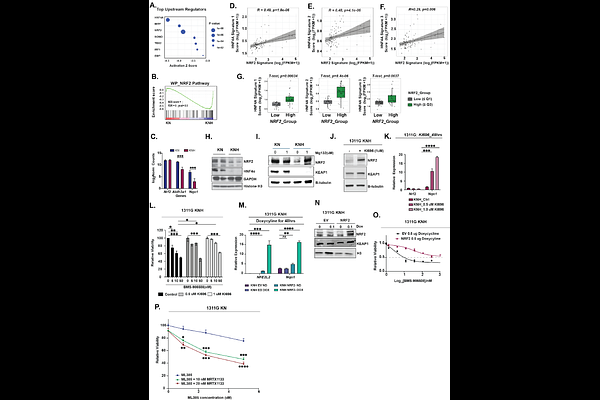HNF4α controls growth, identity and response to KRAS inhibition of invasive mucinous adenocarcinoma of the lung

HNF4α controls growth, identity and response to KRAS inhibition of invasive mucinous adenocarcinoma of the lung
Essel Dadzie, H.; Green, Y. S.; Camolotto, S.; Gumbleton, M.; Maeda, Y.; Spike, B. T.; Snyder, E. L.
AbstractCellular plasticity is a hallmark of cancer, enabling tumor cells to alter identity and evade therapeutic pressure. In invasive mucinous adenocarcinoma of the lung (IMA), NKX2-1 loss triggers a pulmonary to gastric switch marked by aberrant activation of HNF4, a master regulator of gastrointestinal/hepatic differentiation. We find that HNF4 promotes IMA growth and activates a gastric pit cell-like program. Hnf4a deletion induces IMA dedifferentiation, enabling FoxA1/2 to access de novo sites and activate alternative identities. HNF4 also induces a mucinous program associated with tolerance to KRAS blockade, and HNF4 loss enhances response to KRASG12D inhibition. Mechanistically, HNF4 blocks cell cycle exit in drug-tolerant persister cells and promotes activity of the antioxidant transcription factor NRF2. NRF2 activation partially rescues effects of Hnf4a deletion on KRASG12D inhibition, whereas NRF2 inhibition enhances sensitivity to KRASG12D blockade. Thus, HNF4 is a key regulator of identity and primary response to KRASG12D inhibition in IMA.